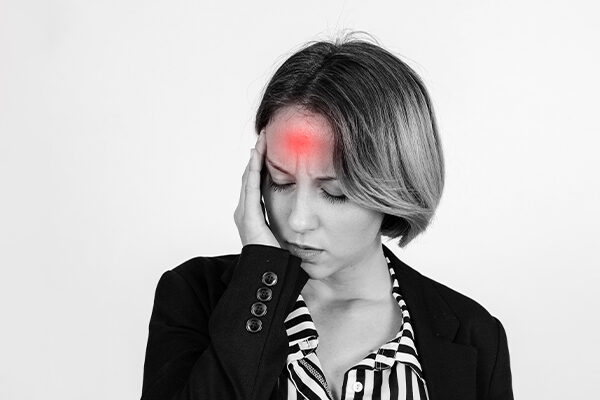Last Updated on April 11, 2023
Introduction
9 foods that fight hot flashes – Waking up on a Sunday morning, planning to spend the day doing your favorite activities, and all of a sudden, your skin starts to feel hot as if you are roasting. Your skin goes red and sweat begins to pour down.
This is a common symptom for women nearing menopause. Hot flashes and night sweats become a part of their routine life. Sometimes these symptoms appear with such intensity that they result in heart palpitations, anxiety, breathlessness, etc. While hormonal and non-hormonal therapies might seem to be the only option to relieve the symptoms, lifestyle modifications including a healthy diet and exercise can be a game-changer.
The following blog will revolve around 9 foods that fight hot flashes, discussing different food types that can help alleviate or aggravate the symptoms of menopause and ways to get rid of them.
Why Do Vasomotor Symptoms Occur?
To begin with, vasomotor symptoms are the most common symptoms of menopause. It mainly includes night sweats and hot flashes. There is no single definitive explanation as to why vasomotor symptoms occur but experts suggest that it has something to do with the hormonal imbalance and core body temperature.
Hunger Can Bring On A Hot Flash
Before diving into the food types that are beneficial to alleviate the symptoms of a hot flash, it is important to understand that being hungry can bring your sugar levels down, resulting in increased adrenaline levels. This in turn leads to an episode of a hot flash.
9 foods that fight hot flashes
Here are the 9 foods that fight hot flashes;
1. Fruits and Vegetables:
The more fruits, veggies, nuts, and legumes you can incorporate into your diet, the better. A plant-based diet, reduced oil consumption, and daily soybeans dramatically reduce the frequency and intensity of postmenopausal hot flashes and related symptoms.
2. Whole Grains:
A good supply of fiber is essential for a well-balanced diet. Whole wheat may be just what you’re looking for because it regulates blood sugar levels and keeps hot flashes at bay. White flour should be avoided whenever feasible because it is high in starch and carbohydrates. It may aggravate hot flashes and increase the frequency of night sweats.
3. Phytoestrogen-rich Foods:
Phytoestrogens can mimic estrogen’s effects. Foods rich in phytoestrogen can help manage hot flashes and lower the risk of menopausal weight gain. With low-fat content and high phytoestrogen content, soy products are among the greatest meals for menopause. Celery, chia seeds, green beans, oats, and legumes are other good contenders for soy food groups because they can help ease the unpleasant symptoms of menopause.
4. Use of Vitamin E:
Vitamin E levels are high in avocado, seafood, and sunflower seeds. Studies suggest vitamin E reduces depression and decreases menopausal weight gain and hot flashes, making it an important factor to consider when making dietary modifications.
5. Healthy Fats:
Anti-inflammatory properties are found in foods high in omega-3 fatty acids, such as fatty fish that aid in alleviating hot flashes. Not only that, these good fats protect women from problems affecting the coronary blood arteries, lowering the total risk of heart disease.
6. Protein-rich Diet:
You must maintain your muscle mass by eating protein-rich foods such as poultry, fish, and meat. Tofu, lentils, chickpeas, almonds, quinoa, and chia are excellent sources of protein for vegetarians and vegans.
7. Water:
The benefits of drinking cold water in managing menopausal hormone fluctuations should not be underestimated. Consuming 8 to 12 cups of water every day will help you avoid bloating and dehydration. Set reminders and never skip the water.
8. Cooling Foods:
With their cooling properties, herbal treatments, and green tea can help alleviate hot flashes. Cooling foods include bok choy, cauliflower, and cabbage because they keep the body hydrated and control the precise balance of electrolytes.
9. Mushrooms:
They are high in selenium, a mineral that aids in the reduction of oxidative stress and inflammation. Stress causes an increase in epinephrine, which can lead to hot flashes. Hence, consuming mushrooms every day can reduce stress in your body.
So, these are the 9 foods that fight hot flashes.
Is There A Link Between Sugar Consumption and Hot Flashes?
Researches indicate that sugar tends to increase both the frequency and intensity of hot flashes. Consuming sugar more than required can lead to episodes of hot flashes that might not end up well.
Chocolates and Hot Flashes
It is believed that caffeinated drinks and foods are a trigger for hot flashes. Similarly, chocolates, in any form, liquid or solid can only increase the body temperature as a result of which the body system overreacts, giving off heat in the form of hot flashes.
Lifestyle Modifications for Hot Flashes
Trying to make changes to your lifestyle is the best way to overcome any medical condition. Here are some of the lifestyle changes that can be made to overcome hot flashes.
- Dress in layers so that it can be removed in case of a hot flash episode
- Portable fan to use when hot flashes hit
- Avoid spicy foods, alcohol, and caffeine, as they tend to worsen the symptoms
- Try to manage weight: Obese women are at a higher risk of getting hot flashes frequently, therefore working towards weight management can help alleviate the symptoms
- Quit smoking
A Word From Revive
Revive Research Institute is conducting women’s health clinical trials to address the medical conditions that they go through and help them live better life with more control and confidence. We are currently conducting clinical trials for hot flashes, oral contraceptives, and uncomplicated UTIs.
Hot Flashed Clinical Trials are Now Enrolling
Bottomline
Transitioning from premenopausal to the menopausal phase is a challenge in itself, and hot flashes make it more difficult to tackle. With all the stress that comes with it, hot flashes can take a toll on a woman’s mental health. Day by day, it becomes a hindrance to the daily routine and leads to low productivity levels.
Remember, making food choices for hot flashes is a process of trial and error. It is, therefore, imperative to be mindful of your eating habits and keep an eye out for your symptoms so that they can be handled accordingly.




